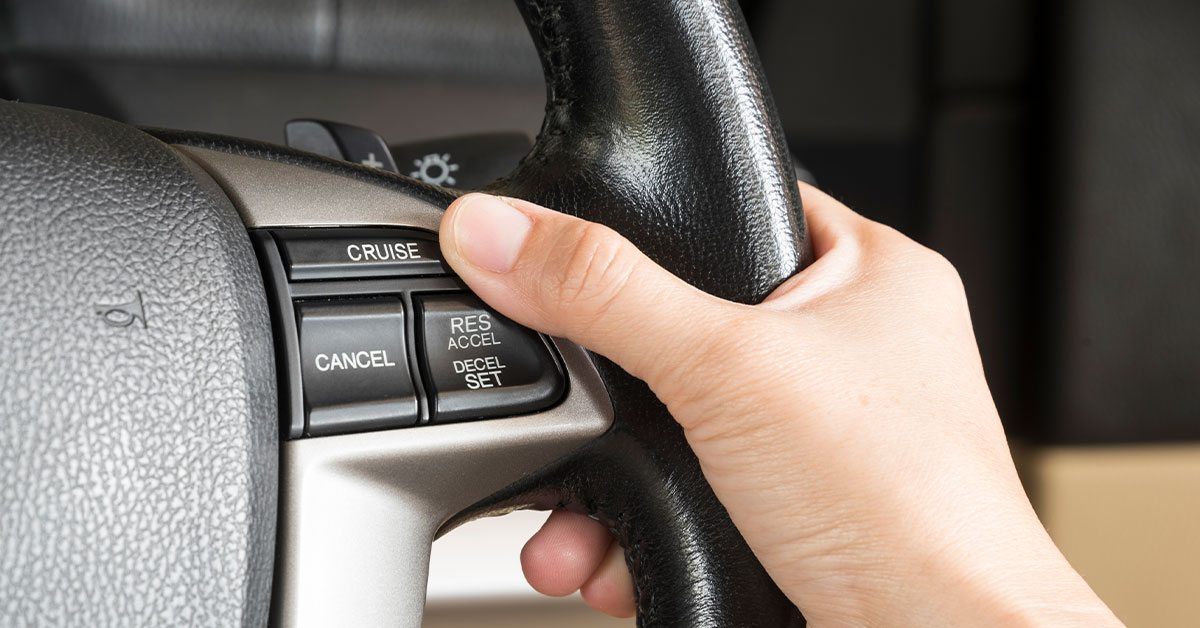
Cruise control transformed the long-distance driving experience. Its benefits have grown alongside its evolution, but there’s one in particular many drivers are interested in.
Is it fuel efficient, or does cruise control use more fuel?
The short answer: it depends (c’mon, you knew that was coming). The long answer takes a little longer, and it starts with an explanation of how cruise control actually works.
How cruise control works
When cruise control was first introduced, the system used a cable to hold the accelerator in a certain position to maintain a constant speed. In your modern car, that old-fashioned mechanical cable has been replaced like so many things with an electronic system that manages speed through a program.
The new system allows for more features, such as the ability for cruise control to adjust speed based on the car in front or an approaching corner. Some systems can also engage the brake when going downhill, though most simply rely on engine braking.
Importantly, modern cruise control can detect when the brake has been pressed by the driver and, instead of fighting, immediately disengages.
Does cruise control use more fuel?
As we mentioned earlier, it depends – a little on your car’s make and model, a little on your driving habits, and mostly on the terrain.
Firstly, not all cars are equal. Some cruise control systems work better than others and use less energy to maintain a set speed.
Secondly, if you’re the type of driver who constantly drives above the speed limit or slows and accelerates often, you’ll be using more fuel than a driver who sets the cruise control at or just below the speed limit and maintains a constant speed.
Thirdly, terrain. Cruise control will use more fuel on stretches of hilly road. Why? Because when a car starts to climb, it loses speed. To compensate and try and maintain the set speed, cruise control will make the engine work harder, burning more fuel.
Without cruise control, the average driver is quite happy to lose a couple of km’s/h on an incline, mostly because they don’t notice it. They won’t be as determined as a cruise control system to maintain the exact speed.
Other – more important – benefits of cruise control
While it can help with fuel efficiency in certain conditions, there are greater benefits that come with the modern cruise control system. Chief among them is that it makes long commutes easier and less tiring.
Maintaining a certain pressure on the accelerator and constantly flicking your eyes to the speedometer can sap energy and focus. By handing these responsibilities over to an untiring, unwavering machine, we can concentrate better on the road and conditions around us.
In short, cruise control uses more fuel when…
…driving through hilly terrain. So unless you’re on long stretches of relatively flat road, switch it off and drive the old-school way.
If you’re experiencing issues with your cruise control, don’t hesitate to give us a call at Eastern Tyre Centre. We’re experts in the area, and we’ll diagnose and offer solutions to help get it back in working order.
Credit : Source Post






